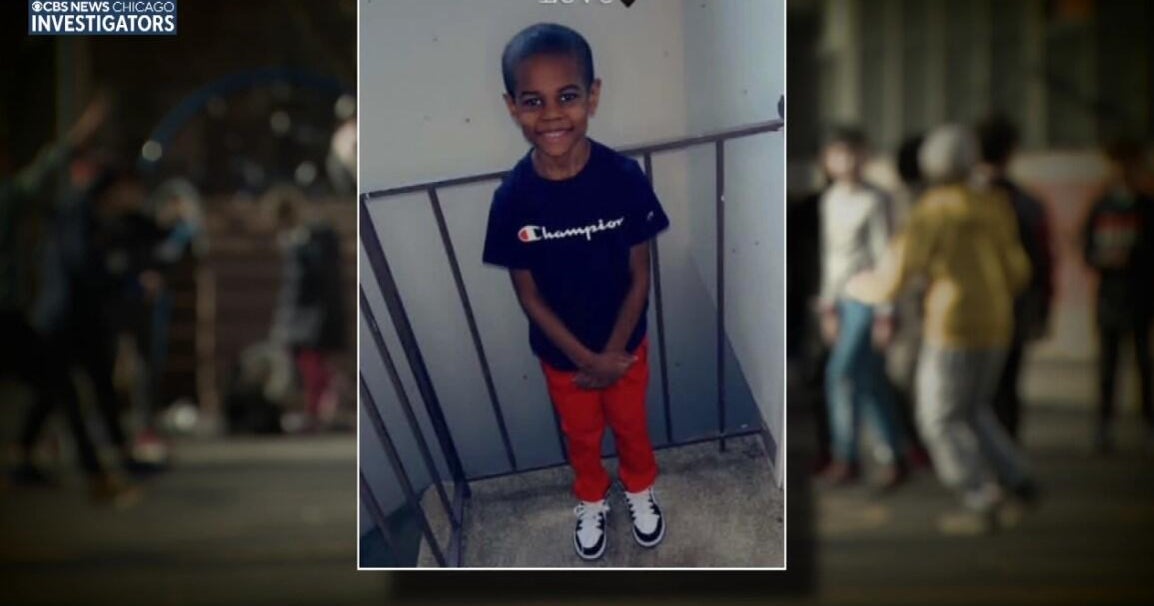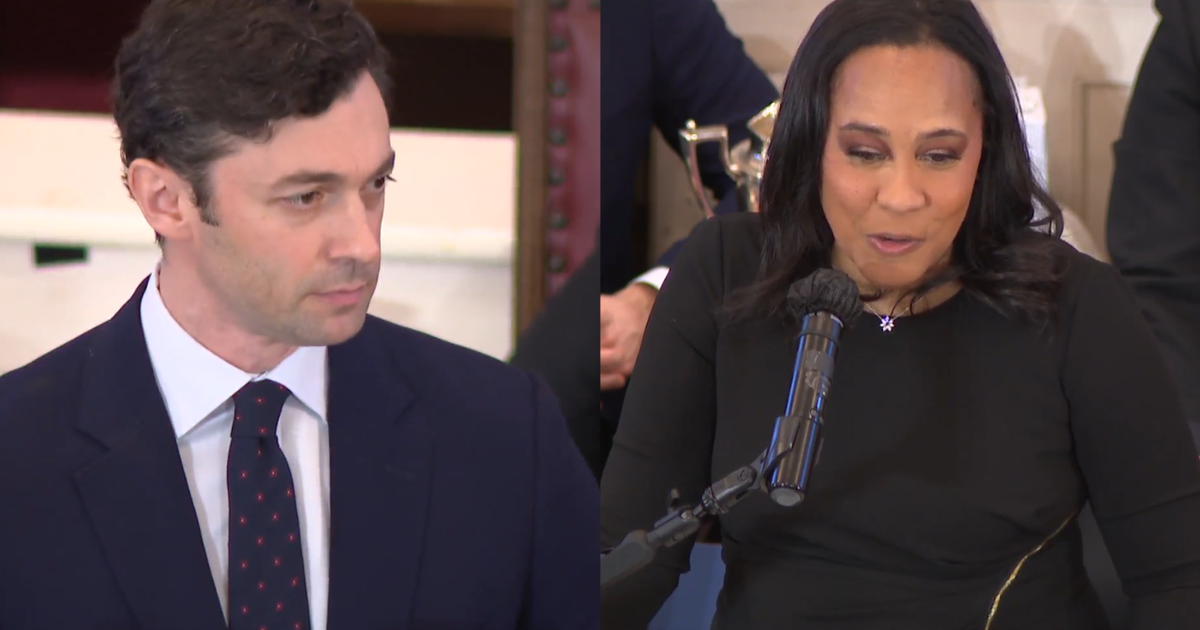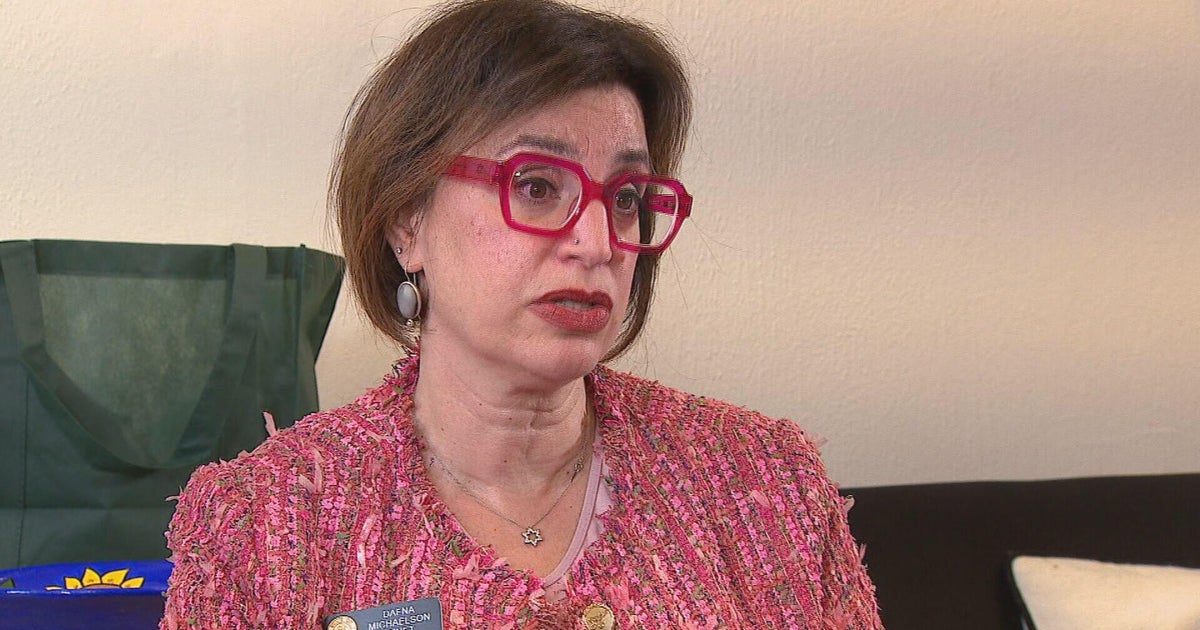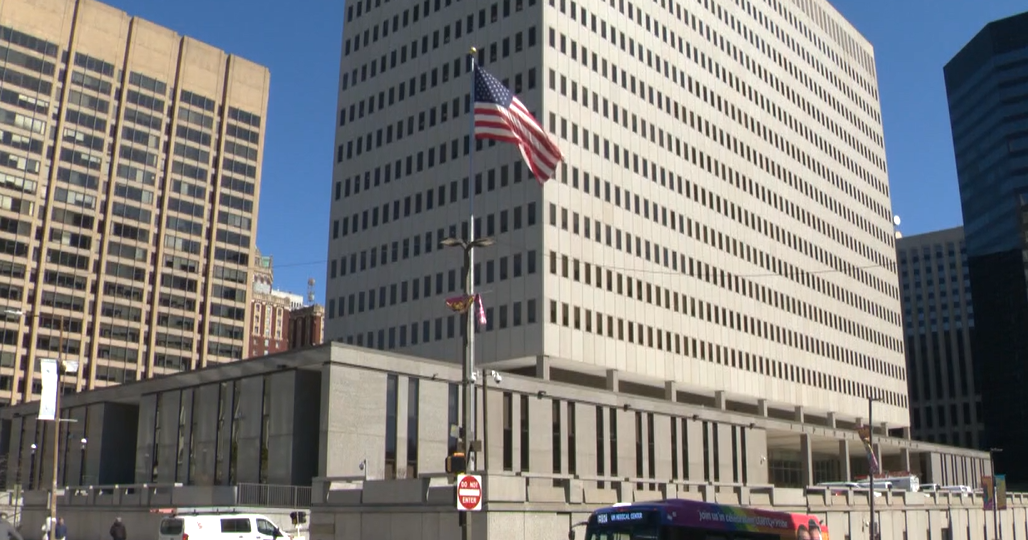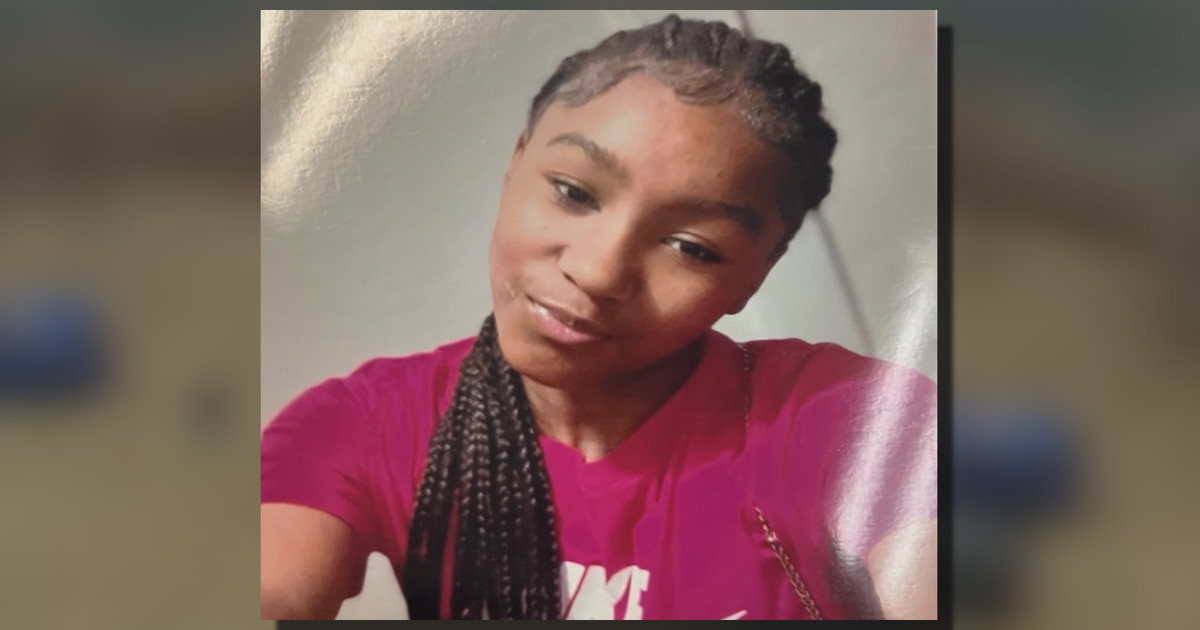North Carolina GOP Lawmaker Slammed For 'Keep Our State Straight' Plea
RALEIGH, N.C. (CBS / AP) -- Rhetorical skirmishes continued Tuesday in North Carolina over a law limiting protections for LGBT people, as Democrats criticized a Republican's plea to "keep our state straight."
The criticism came a day after dueling demonstrations drew thousands of protesters for and against the law, ending with the arrests of 54 people voicing their opposition to the law in the Legislative Building.
At a demonstration in support of the law earlier Monday, the state's Republican nominee for attorney general, state Sen. Buck Newton, urged the crowd to "tell your friends and family who had to work today what this is all about and how hard we must fight to keep our state straight."
The North Carolina Democratic Party issued a statement Tuesday calling the comments hateful and discriminatory toward lesbian, gay, bisexual and transgender people. They called for Newton, who shepherded the legislation through his chamber, to apologize.
Newton told reporters on Tuesday that the phrase "keep our state straight" had nothing to do with sexual orientation. "It means keep men out of the ladies' room," he said.
"I think the silly season is upon us and I think this whole effort by the Democratic Party is to be expected," Newton said, adding, "I never mentioned gays or anyone. So I'm not quite sure how they made that leap. Maybe they're being a little sensitive."
North Carolina's top elected Republican leaders have said they don't plan to repeal the law, a stance likely to stoke further protests.
Meanwhile, the leader of a national advocacy group said Tuesday that transgender people used bathrooms aligned with their gender identity on Monday during protests in the Legislative Building and weren't arrested for it, despite the law's provisions. The law directs transgender people to use bathrooms in public buildings corresponding to the sex on their birth certificate, though it doesn't spell out an enforcement mechanism.
Mara Keisling, director of the National Center for Transgender Equality, said the stance of state Republican leaders toward transgender bathroom access is "nonsense" considering that transgender people have often been able to go about their day without unwanted attention in recent years.
"Lots of times we aren't noticed, and other times we are noticed," she said by phone.
But now they face a greater risk of being confronted in bathrooms because of the law -- and not just in North Carolina, she said.
On Monday night, Keisling was among demonstrators arrested for refusing to leave a legislative leader's office when the building closed, but the arrests weren't related to bathroom access. Eighteen entered a legislative leader's office and began chanting, while the rest were arrested a couple of hours later.
Acting General Assembly Police Chief Martin Brock said all were charged with second-degree trespassing and cited for violating building rules or the fire code. One was also charged with resisting arrest.
Detention records show the protesters were released later that night or early Tuesday morning, and they have June court dates.
Keisling said she and 17 others in the first wave of arrests were seated in a holding area of the county jail and separated by gender. She sat with the women, while a transgender man sat with the men.
"Every officer I dealt with all day was businesslike and doing their job in exactly the way you'd expect them to do it," she said.
The law blocks local and state protections for lesbian, gay, bisexual and transgender people at their jobs and in public accommodations. It also takes away people's ability to use state law to sue over workplace discrimination.
North Carolina House Democrats filed legislation Monday to repeal the law, though a lack of Republican sponsors made its chances appear slim.
Senate leader Phil Berger said Monday night that he wasn't swayed by the protesters: "I don't know that it'll change anybody's mind."
© Copyright 2016 The Associated Press. All Rights Reserved. This material may not be published, broadcast, rewritten or redistributed.
